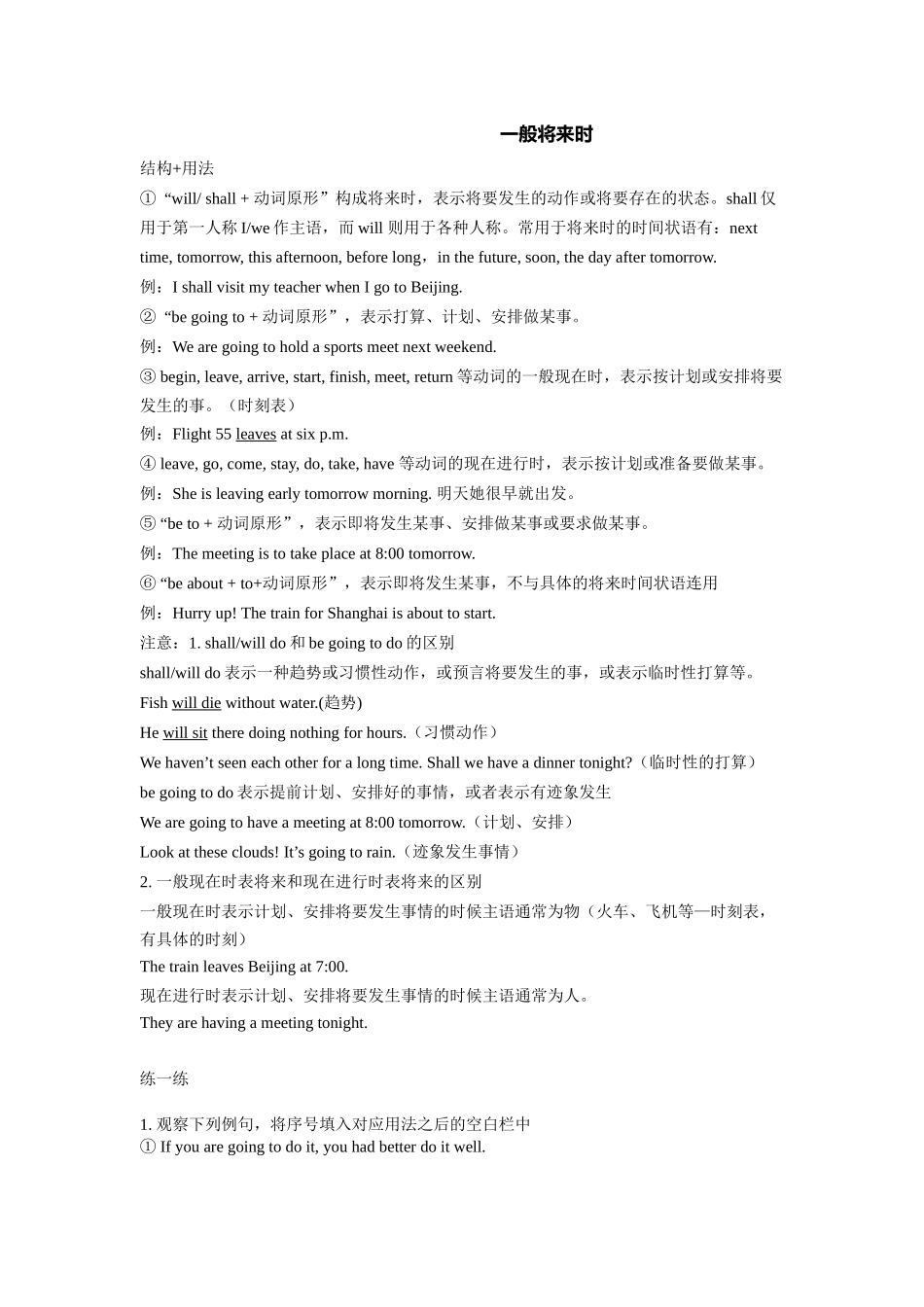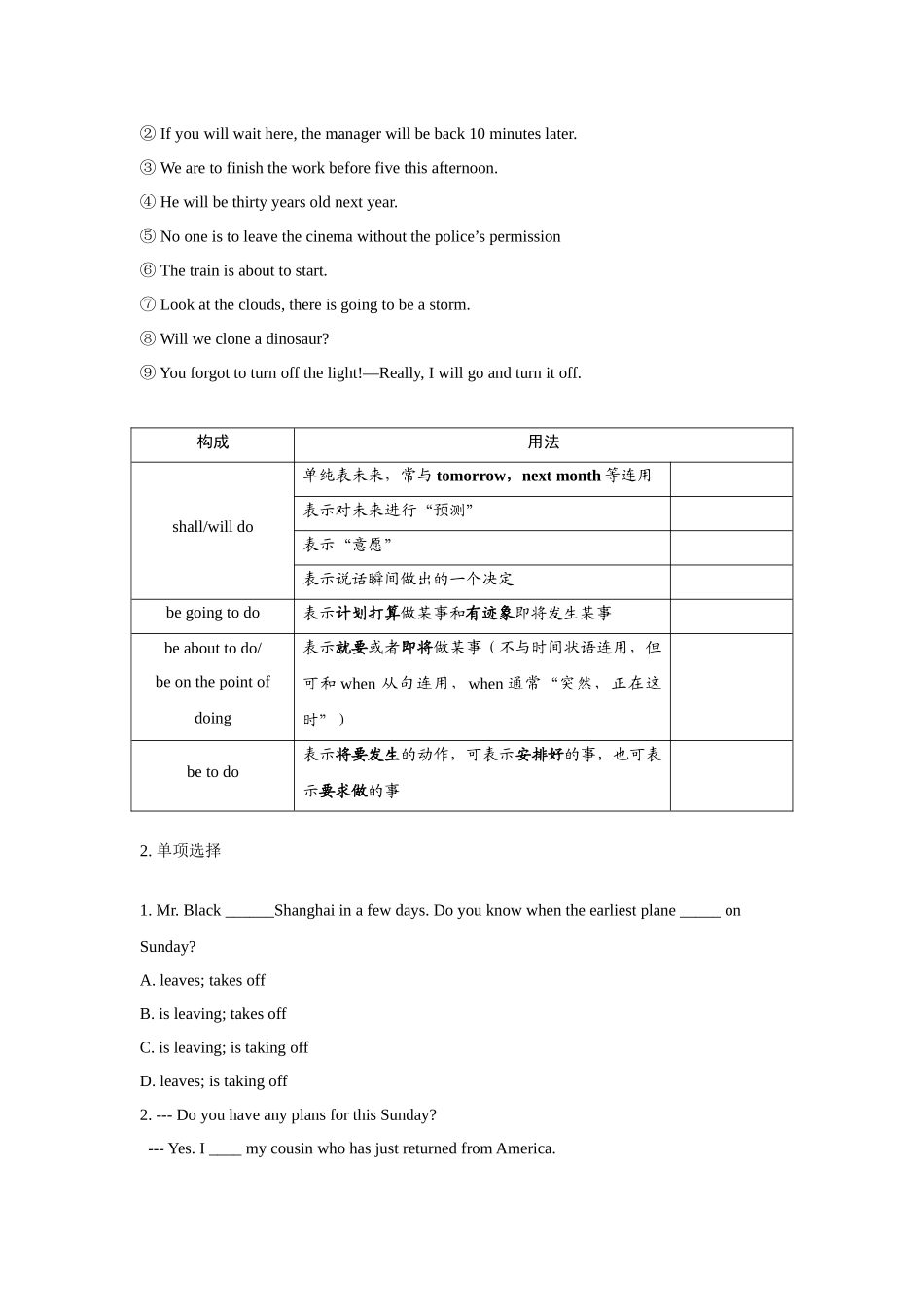一般将来时结构+用法① “will/ shall + 动词原形”构成将来时,表示将要发生的动作或将要存在的状态。shall 仅用于第一人称 I/we 作主语,而 will 则用于各种人称。常用于将来时的时间状语有:next time, tomorrow, this afternoon, before long,in the future, soon, the day after tomorrow.例:I shall visit my teacher when I go to Beijing.② “be going to + 动词原形”,表示打算、计划、安排做某事。例:We are going to hold a sports meet next weekend. ③ begin, leave, arrive, start, finish, meet, return 等动词的一般现在时,表示按计划或安排将要发生的事。(时刻表)例:Flight 55 leaves at six p.m.④ leave, go, come, stay, do, take, have 等动词的现在进行时,表示按计划或准备要做某事。例:She is leaving early tomorrow morning. 明天她很早就出发。⑤ “be to + 动词原形”,表示即将发生某事、安排做某事或要求做某事。例:The meeting is to take place at 8:00 tomorrow.⑥ “be about + to+动词原形”,表示即将发生某事,不与具体的将来时间状语连用例:Hurry up! The train for Shanghai is about to start.注意:1. shall/will do 和 be going to do 的区别shall/will do 表示一种趋势或习惯性动作,或预言将要发生的事,或表示临时性打算等。Fish will die without water.(趋势)He will sit there doing nothing for hours.(习惯动作)We haven’t seen each other for a long time. Shall we have a dinner tonight?(临时性的打算)be going to do 表示提前计划、安排好的事情,或者表示有迹象发生We are going to have a meeting at 8:00 tomorrow.(计划、安排)Look at these clouds! It’s going to rain.(迹象发生事情)2. 一般现在时表将来和现在进行时表将来的区别一般现在时表示计划、安排将要发生事情的时候主语通常为物(火车、飞机等—时刻表,有具体的时刻)The train leaves Beijing at 7:00.现在进行时表示计划、安排将要发生事情的时候主语通常为人。They are having a meeting tonight.练一练1. 观察下列例句,将序号填入对应用法之后的空白栏中① If you are going to do it, you had better...


